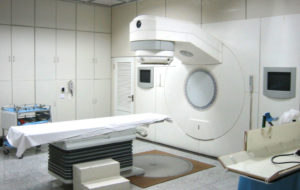A group of research teams from the United States found that in some cases, the use of radiotherapy for the treatment of skin cancer may lead to harm. Their papers are published in the journal Nature Immunology, which describes a previously unknown mechanism that contributes to immunosuppression during radiotherapy. Guido Kroemer and Laurence Zitvogel of the University of Paris in the magazine put forward their own views and opinions on all the related work.

Researchers have noted that radiotherapy (such as ionizing radiation) is usually used for nearly half of the treatment of skin cancer, in fact it often can not complete the initial plan to reduce the tumor, and even after treatment, the tumor becomes more serious. Their new study provides an explanation of why this is so, and one aspect is that radiotherapy may be prone to recurrence of skin cancer or even more severe. They found that this phenomenon may occur due to radiation that inhibits the immune system of the targeted region.
Then, a skin-specific immune cell called Langerhans, which is transferred to the drainage zone lymph nodes by treatment of some fragments of the associated band, causes some types of T cells to be activated, and unfortunately those T cell disorders are immunized System function, let it stop attacking tumor cells, so that the tumor does not use worry about the immune response in the case of birth.
At the Icahn Medical College in New York, the researchers found some phenomena in which laboratory mice were tested for treatment, compared to untreated wild mice found in laboratory mice with Langerhans cells Reduced. The result is that they can see the Langerhans cells associated with other proteins from the tumor leading to drainage lymph nodes and subsequently stimulated T cells and other areas. They also found that mice that could inhibit Langerhans cells showed better antitumor responses.
The work done by the research team and the recommendations made by Zitvogel and Kroemer suggest that in the future development, doctors should be more careful to use radiation therapy to treat skin cancer, especially when dealing with larger skin areas should pay attention.
Leave a Reply